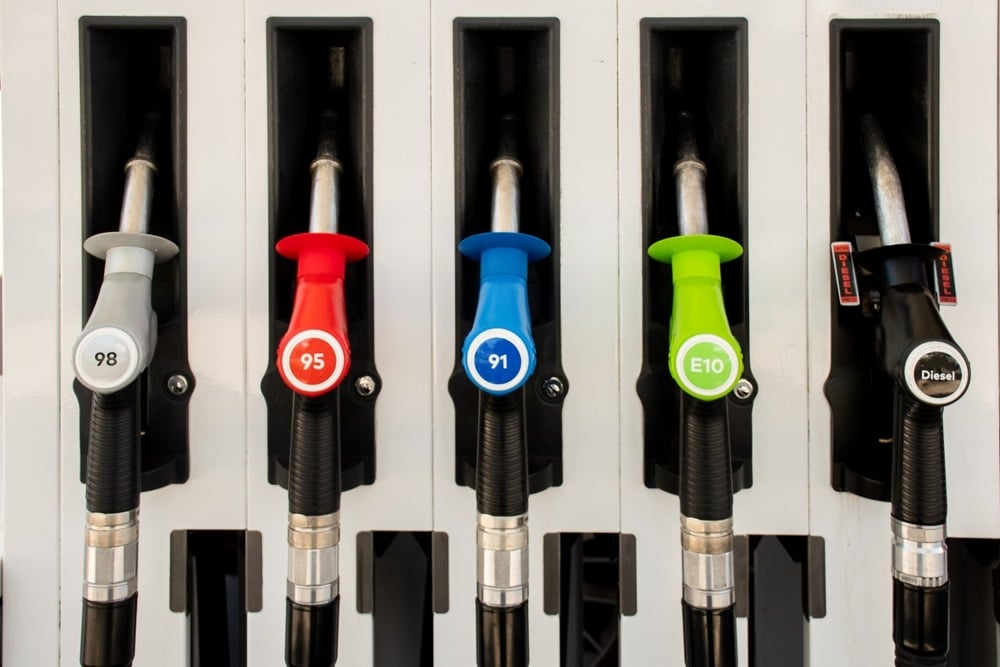
If you’ve ever grumbled about the price of petrol at the bowser, brace yourself—a much bigger problem is brewing beneath the surface.
Australia’s fuel reserves are so low that, in the event of a significant supply disruption, the nation could grind to a halt in less than a month.
You read that right: supermarket shelves stripped bare, hospitals running out of critical medicines, and the country’s transport network at a standstill—all within weeks.
Australia, a nation that prides itself on self-sufficiency and resilience, is in a precarious position regarding fuel security.
According to recent figures from the Department of Climate Change, Energy, the Environment and Water, we have just 28 days’ worth of petrol, 24 days of diesel, and a mere 20 days of jet fuel in reserve.
The root of the problem is that Australia now has only two operating oil refineries, and we rely heavily on imports from countries such as Singapore, South Korea, and Japan.
Any disruption to international shipping routes—whether due to conflict, natural disaster, or global market shocks—could leave us dangerously exposed.
A national security blind spot
Former independent senator Rex Patrick has been sounding the alarm, calling the situation 'awful' and blaming successive governments for neglecting what he sees as a critical national security issue.
'If there’s a conflict, and it doesn’t have to be a conflict with Australia, but something that disrupts our fuel supplies coming from the Strait of Hormuz or Singapore, we’re in real trouble.'
It’s not just about filling up your car, either. Diesel is the lifeblood of Australia’s supply chains—it powers the trucks and trains that deliver food to supermarkets and medicines to hospitals.
According to Patrick, supermarkets typically have just 10 days’ worth of dry food and a week’s worth of frozen goods, while hospitals have only three days’ supply of essential drugs.
If the fuel runs out, these supply chains could collapse almost overnight.
Government reassurances—but are they enough?
Despite these warnings, the federal government insists Australia is 'fuel secure'.
A spokesman for Chris Bowen, the minister for climate change and energy, claims that we now hold more aviation fuel, petrol, and diesel stocks than ever in the past 15 years.
The government points to the Minimum Stock Obligation, including fuel in pipelines and ships en route to Australia, as evidence of a robust buffer.
But critics argue that these figures are misleading. The International Energy Agency (IEA)—the global body responsible for monitoring fuel security—doesn’t count fuel that’s still in transit or not readily accessible.
According to the IEA, Australia has just 48 days’ net oil imports, well short of the 90-day minimum required under the treaty we signed back in 1974.
For context, Japan and South Korea each have more than 200 days’ worth of reserves, while even New Zealand manages 91 days.
Why does this matter?
The 90-day stockpile rule isn’t just bureaucratic red tape—it’s designed to ensure that countries can weather severe supply disruptions, whether caused by war, natural disasters, or market shocks.
Australia’s failure to meet this obligation puts us at the bottom of the list among oil-importing nations and leaves us vulnerable to events far beyond our control.
Imagine a scenario in which a conflict in the Middle East closes the Strait of Hormuz, through which 20 per cent of the world’s oil passes, or a cyberattack cripples shipping operations in Singapore.
Within days, fuel supplies in Australia could start to dwindle, and within weeks, the effects would be felt everywhere—from empty supermarket shelves to grounded flights and shuttered hospitals.
What’s being done—and what more can be done?
The government has made some moves to address the issue, including investing in domestic fuel storage and encouraging alternative energy sources.
However, critics like Rex Patrick argue that these efforts pale compared to the billions spent on other national security projects, such as nuclear-powered submarines that won’t be operational for decades.
There’s also a broader conversation about energy independence. Should Australia invest in more domestic refining capacity?
Should we diversify our sources of fuel imports? And what role should renewables and electric vehicles play in reducing our reliance on imported oil?
What can you do?
While the big decisions rest with policymakers, there are steps we can all take to be more resilient in the face of potential fuel shortages.
Consider keeping your vehicle’s tank at least half full, stocking up on essential supplies, and considering alternative transport options.
And, of course, stay informed—knowledge is power, especially in uncertain times.
Are you concerned about Australia’s fuel security? Have you noticed any changes in fuel availability or prices in your area? What steps should the government take to protect our supply chains?
We’d love to hear your thoughts and experiences—share your comments below and join the conversation.







